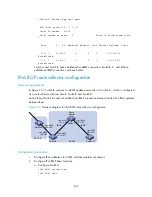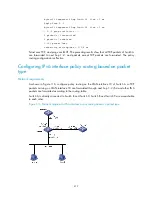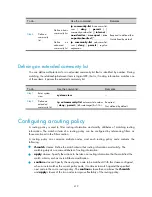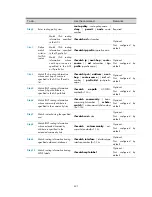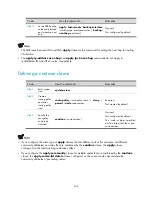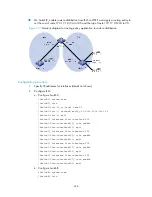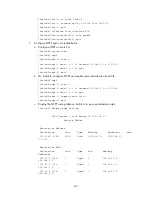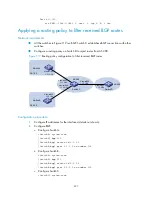
416
AS-PATH list
An AS-PATH list, configured based on the BGP AS-PATH attribute, can only be used to match
BGP routing information.
Community list
A community list, configured based on the BGP community attribute, can only be used to match
BGP routing information.
Extended community list
An extended community list, configured based on the BGP extended community attribute (Route-
Target for VPN and Source of Origin), can only be used to match BGP routing information.
Routing policy
A routing policy is used to match routing information and to modify the attributes of permitted
routes. It can reference the previously mentioned filters to define its own match criteria.
A routing policy can comprise multiple nodes, which are in a logical OR relationship. Each
routing policy node is a match unit, and a node with a smaller number is matched first. Once a
node is matched, the routing policy is passed and the packet will not go to the next node.
A routing policy node comprises a set of
if-match
and
apply
clauses. The
if-match
clauses
define the match criteria. The matching objects are some attributes of routing information. The
if-
match
clauses of a routing policy node is in a logical AND relationship. That is, a packet must
match all the
if-match
clauses of the node to pass it. The
apply
clauses of the node specify the
actions to be taken on the permitted packets, such as route attribute modification.
Routing policy application
A routing policy is applied on a router to filter routes when they are received, advertised, or
redistributed, and to modify some attributes of permitted routes.
Routing policy configuration tasks
Defining filters
Prerequisites
•
IP-prefix list name
•
Matching address range
•
Extcommunity list sequence number


